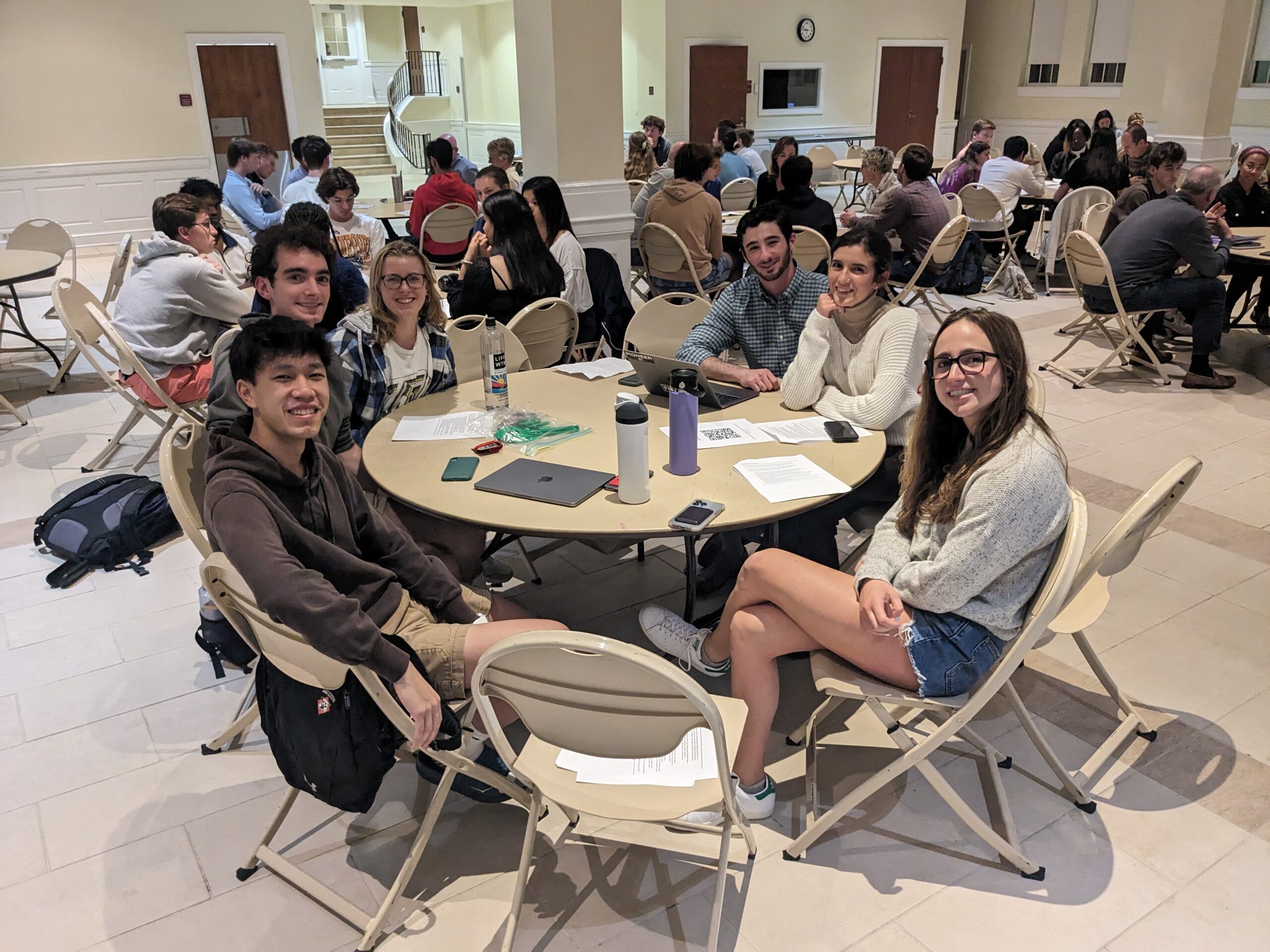
By Monty Krakovitz ’25
Recently, in my Politics and Literature class with Dr. Ahrensdorf, we read Aristophanes’ The Clouds, a play discussing tradition, religion, and morality in comparison with a priori reason, philosophy, and science. Socrates, the representative of philosophy and naturalism convinced Pheidippides using reason and philosophy that it is actually just to beat his father, Strepsiades. Strepsiades, wanting to cast off his superstitious belief in Zeus, was convinced by his son’s argument for father beating. It was only once Pheidippides made the same argument for mother beating that Strepsiades got angry and proceeded to burn down Socrates’ school.
While Pheidippides clearly won the debate with his father over the justice of beating one’s parents from the perspective of a priori reason, his conclusion strongly challenged Strepsiades’ moral conscious and natural impulses.
After no one in the class could come up with a foolproof way using philosophy alone and ignoring instinctual aversion to beating one’s mother, another question was raised: if a son can beat his mother, why can’t he sleep with his mother? Once again, students in the class could not think of a reason to refute this idea without appealing to natural repulsions to such a heinous act of incest. We all intrinsically know we ought not to beat our mothers, just as we all intrinsically know it is wrong and shameful to sleep with our mothers. We know this even if we cannot clearly articulate why.
There are topics that we find so repulsive that we are not willing to debate them. In The Clouds, Strepsiades draws the moral line at his son beating his mother. I presume most of us are not willing to debate and are certainly not willing to change our minds on the morality of incest. This raises the question: what are the limits to deliberation, if any? Is it proper to debate something like the morality of a son sleeping with his mother, or does this stray into territory that we are unwilling to discuss?
I personally would argue that it is not proper to debate the morality of incest. This is because it goes against our prejudices, and deliberating something based on reason alone without recognizing the importance of the moral conscience is an error that can normalize behavior that we all agree is immoral and should not be tolerated. Likewise, it is not proper to deliberate the morality of cold-blooded murder without holding a properly informed moral conscience in the highest regard.
But what about capital punishment? Most would not find a debate over capital punishment to be beyond the scope of debate. Why is this the case? Both involve killing, but murder is done out of injustice and capital punishment (some argue) is done out of justice. This may be because virtually no one will defend the morality of murder, but many will defend the morality of capital punishment. Considering a large proportion of the population today and in our western tradition support the death penalty, this may be the reason why most consider it within the realms of debate while cold-blooded vigilantism murder is not.
It is natural for people, living in democratic times, to value the opinions of their fellow citizens and put away their pride out of the assumption that all of our voices hold equal value. When an opinion is held by a wide swath of the population, we naturally see it as an opinion worth discussing because to not do so would be to ignore our fellow citizens in an inegalitarian manner. When an opinion is not held by a large number of people, such as the morality of incest and murder, we generally do not find these issues worthy of debate.
While we should maintain our ability to provide reasons for our positions on these issues (particularly as we educate children about the difference between right and wrong), given that there is not unlimited time in the day to deliberate certain topics, we ought to be selective in which ones are actively debated. Maybe popular opinion ought to be the litmus test for if a topic is within the scope of deliberation. Maybe it shouldn’t. Nevertheless, the topics that are within the sphere of deliberation is an important question, and one that is crucial not only for the DCI, but for society as a whole.
Image: Strepsiades and his son Pheidippides are in the foreground with Socrates hanging in the air in a basket. This is a scene from Aristophanes’s comedy The Clouds. This work is in the public domain in its country of origin and other countries and areas where the copyright term is the author’s life plus 70 years or fewer.

